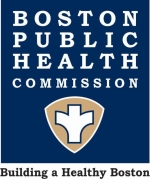 City coordinates with shelters, community partners to protect vulnerable from extreme cold
City coordinates with shelters, community partners to protect vulnerable from extreme cold
Mayor Thomas M. Menino has directed city agencies to be on high alert as temperatures in Boston dip into the single digits, and below zero with wind chill, this week. Officials from the Boston Public Health Commission (BPHC), Boston EMS, and the Inspectional Services Department reminded residents to take simple precautions to stay warm and to look out for anyone that might need assistance. Speaking from Woods-Mullen, one of two shelters operated by BPHC, the officials also outlined extra measures to increase outreach to the homeless and to offer warm, safe shelter to those in need.
“We were fortunate to have a mild winter last year, and we want to make sure people are safe now that we’re seeing extremely cold weather in Boston again,” Mayor Menino said. “I’ve asked everyone to be vigilant over the next few days and to keep an eye out for any neighbors in need. There is plenty of warm shelter available around the city, and we’re here to help anyone that may be vulnerable during this time.”
People that notice anyone in immediate danger as a result of the extreme cold should notify public safety officials by calling 9-1-1.
City officials have been coordinating since the weekend to prepare for the deep freeze. On Monday, the Emergency Shelter Commission asked homeless service organizations in Boston to activate their extreme cold weather plans and urge all unsheltered and vulnerable clients to seek shelter from the cold. All adult emergency shelters will remain open 24-hours a day for the duration of the extreme cold weather. Pine Street Inn has mobilized additional outreach workers to assist those living on the street, and Boston Health Care for the Homeless is in contact with hospitals and emergency rooms to offer follow-up care for homeless people that experience cold weather health issues. Boston EMS is in contact with Boston Police as well as the MBTA and State Police to watch out for people in peril and to provide assessment and transportation as needed.
Parents should make sure that children are properly dressed for the cold temperatures. Children who are not dressed properly, and whose skin is exposed to extremely cold air, can suffer frostbite within minutes. Children waiting for buses should be well covered with warm jackets, hats, gloves and scarves.
Residential units should be heated to at least 68 degrees during the day and 64 degrees at night. Tenants that experience heating issues should first contact their landlords to correct any problems. If a landlord is unresponsive, Boston residents can contact the Mayor’s 24-hour hotline for assistance at (617) 635-4500. Hotline staff will alert the city’s Inspectional Services Department, which has housing and building inspectors on duty to investigate situations and to work with property owners to get heat turned back on.
General heating safety tips for winter weather include:
- Never use your oven for heat.
- Electric powered portable heaters should never be left on while sleeping and should be kept at least three feet away from combustible materials.
- Do not overload electrical sockets.
- Never leave candles unattended.
- CO detectors are now required in homes by law. They must be within ten feet of sleeping areas.
- Working smoking detectors should be on each floor of your home, particularly near bedrooms.
- To avoid frozen pipes, let warm water drip overnight in faucets, preferably from a faucet on an outdoor wall, and leave cabinet doors open to allow heat to reach un-insulated pipes.
The Boston Public Health Commission suggests following these tips to stay warm and avoid the dangerous effects of extremely cold weather. Additional winter safety guidance is available at www.BPHC.org.
- Layer clothing.
- Cover exposed skin. Skin is vulnerable to frost bite at such low temperatures.
- Keep moving while outdoors.
- Check on elderly family and neighbors.
- Avoid getting wet, and avoid walking on frozen ponds and lakes as ice may not be fully frozen.
- Drink warm, non-caffeinated fluids.
- Keep Pets Indoors.

